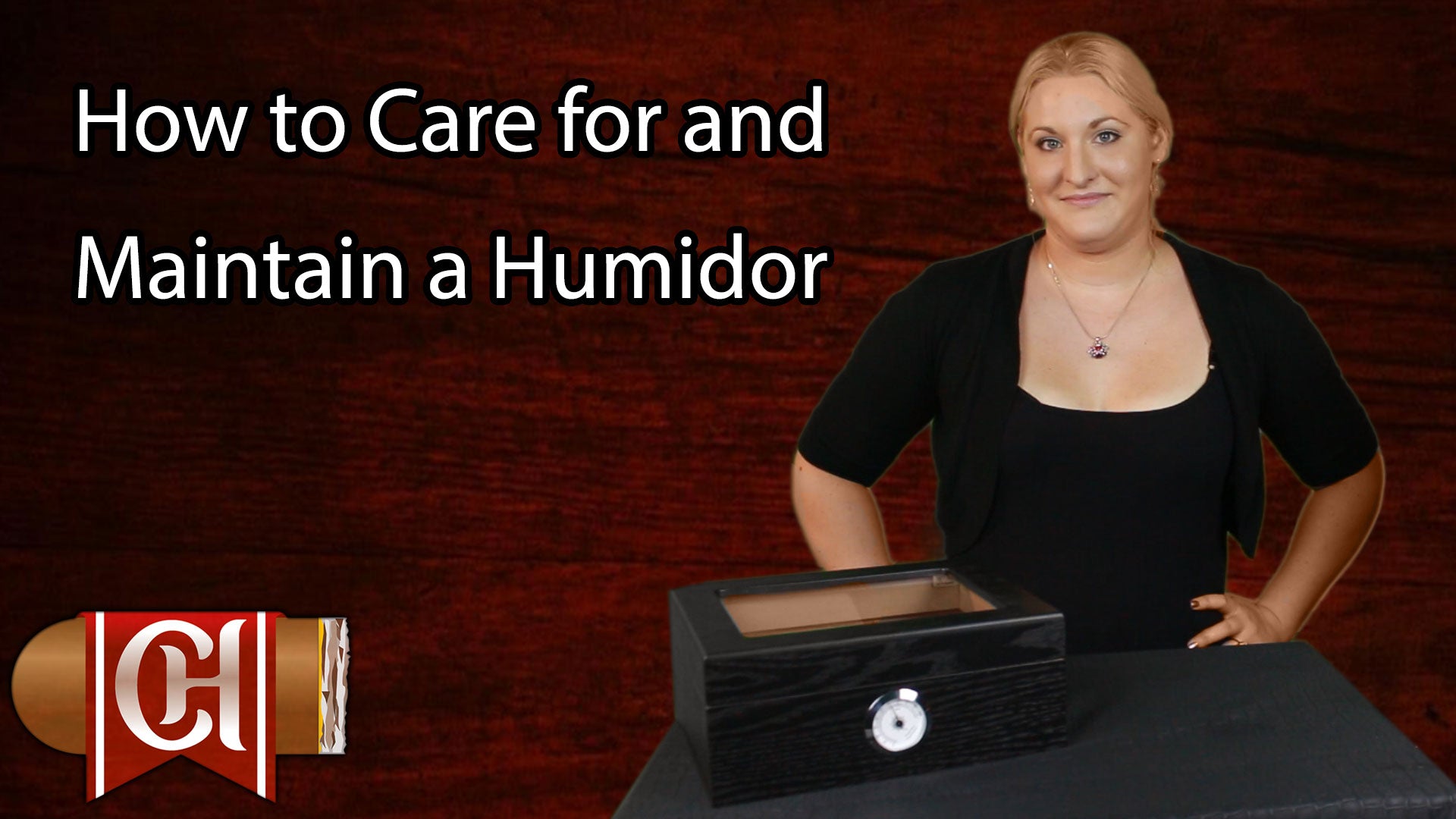Your Cart is Empty

A humidor works wonders for keeping your cigars in peak condition, but they are not impervious. It takes proper care to keep your humidor maintained and working at its best. Don’t worry, it’s not backbreaking labor. A few tips and some forethought are really all you need in order to keep your humidor going strong.
Kiln-dried Spanish cedar absorbs moisture and releases moisture slowly, which works wonders for maintaining humidity. However, when the humidor first arrives, the cedar is dry. If cigars are placed in a dry humidor, the cedar will naturally try to absorb moisture from them. Seasoning your humidor is crucial to prevent this from happening, and starts the process of creating the perfect humid environment for your cigars to rest in.
The internal temperature of a humidor should be at 70 degrees Fahrenheit. The outside conditions of the environment in which your humidor is stored will greatly affect the interior humidity and temperature. Keep your humidor out of the sun. Added solar heat will just change the temperature (and affect humidity) over the course of the day. Additionally, outside humidity will affect the humidity of the humidor, so if you live in a humid environment, find the driest possible place to keep your humidor stored.
Humidifying your humidor properly required keeping proper relative humidity in your cigars, in the air inside the humidor and in the cedar lining. Your humidifier is what keeps that moisture in the air, and affects the moisture in the cedar and cigars. Whichever type of humidifier you use, whether it be foam-based humidifiers, crystal gel humidifiers, bead-based humidifiers or Boveda humidifiers, make sure you maintain these and keep them running properly. Follow the instructions to refill your humidifiers as needed. This could be every few days to every few weeks or months. Also be sure to replace your humidifiers as per the instructions for each respective humidor type. Foam humidifiers need to be replaced every 10-12 months, for example. Keep on this so you have fresh materials humidifying your cigars at all times.
Two of the most common humidifying agents that are used for humidors are distilled water and propylene glycol. Both come with their pros and cons depending on how often you open the humidor. Every time the humidor is opened, it will affect the air’s relative humidity. If you open your humidor on a frequent basis, we recommend using distilled water, as it will be easy to replace and refill inside a humidifier, and will be low maintenance. If you do not go into your humidor very often, propylene glycol may be better for you. Propylene glycol doesn’t evaporate unless the air hits a certain humidity range, so when left undisturbed in a closed humidor, the propylene glycol will last longer. Propylene glycol also has an antifungal agent which will prevent plumes from forming on your cigars.
Your hygrometer is your best defense against drastically fluctuating humidity. Be sure to look at the hygrometer reading at least once a week to make sure it is maintaining a relative humidity of 70%. Watching this reading will help you determine how often your humidifier needs to be refilled or replaced.
Cigar Oasis electronic humidifiers, featuring models that can humidify from 75 up to 10,000 cigars, should be on your short list for a hands-free, low maintenance solution to cigar care. With four models, and a complete redesign for 2014, choosing the right one can be a little confusing and overwhelming. The purpose of this guide […]
The post The Ultimate Guide to Cigar Oasis Humidifiers appeared first on CheapHumidors.com Blog.